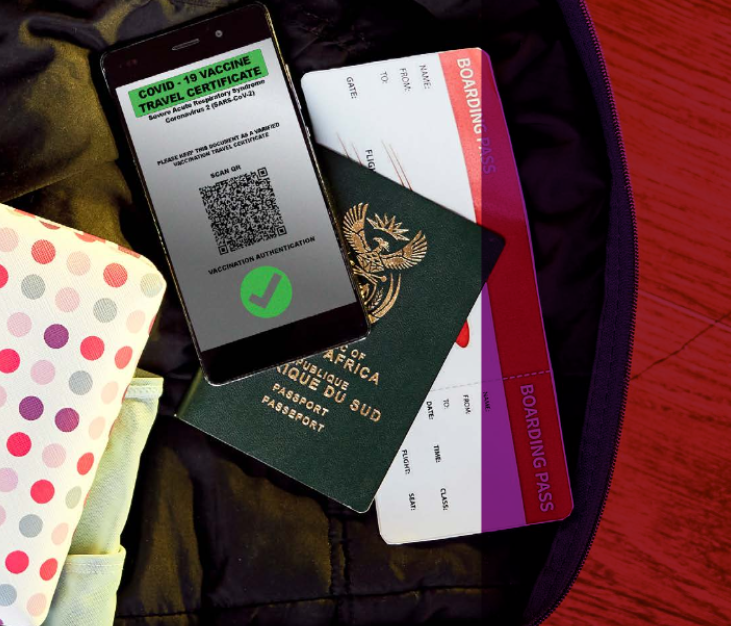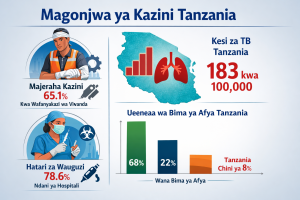
Kenya To Join Three Others on the African Passport and Free Movement of People 2063 Agenda, Implications on Cross-Border Trade and Development.
African Union 2063 Aspirations
Talking to an international conference, Kenya’s president indicated that the country would end visa requirements to all African visitors by the end of the year citing such restrictions as a case of Africa working against herself. This is a significant step towards realizing the vision of a united and prosperous Africa where visa-free travel has been a priority goal of the African Union for the past decade. Moreover, the move aligns with the objectives of the African Continental Free Trade Area (AfCFTA) and the East African Community (EAC) single market aspirations. This has emphasized the need for more such measures and reciprocity between nations towards shared prosperity. While the realization of visa-free travel is a challenging undertaking, the role of the AfCFTA/EAC Secretariat cannot be underestimated in enhancing a free visa regime for better intra-African trade outcomes.
Africa has endured a long and arduous journey towards economic integration and cross-border trade. The AfCFTA has come into effect to provide supranational support to regional blocks such as the EAC towards creating a single market for goods and services in Africa which would facilitate free movement of people to enhance economic growth. However, for this ambitious plan to succeed, a crucial element is the removal of visa barriers, not just within regional blocs but across the entire continent.
The African Visa Openness Index
The African Passport and Free Movement of People initiative is one of the 14 other African Union flagship projects of Agenda 2063, among them the AfCFTA, that seeks to remove restrictions on African’s ability to travel, work, and live within their own continent. The environment has however remained largely restrictive on the movement of people despite political commitments indicating limited action on law to enhance the free movement of people. With the need for less complexity in the issuance of visas by member states to enhance free movement, Kenya’s commitment, if actualized could increase trading across the continent.

The visa openness situation in Africa is dire with only 3 countries, Seychelles, Benin, and the Gambia offering visa-free access to all Africans as of 2023 which is significantly law for the 1.3 billion population and 54 countries. The 2022 report indicated that the continent improved by 8% in openness score to pre-COVID-19 days in which 40 countries maintained their score, 10 countries improved, and 4 countries recorded a decrease. There has been further progress in which 48 out of the 54 countries offer visa-free travel to the nationals of at least one other African country indicating elements of strict and cross borders. 42 countries also offer visa-free travel to nationals of at least 5 other African nations.
For 27% of intra-Africa travel, citizens of the continent can obtain a visa on arrival up from 21 in 2021 offered by 29 countries to the nationals of at least one other African country. Notably, 24 countries offer visas on arrival to nationals of 5 or more countries while 14 countries offer visas on arrival to 35 or more nations. The report further indicated that 47%, close to half, of intra-African travelers, still need a visa before traveling down from 55% in 2016.
Moreover, there are 8 countries in the top 20 performers from the East African region on the visa openness index. This is compared to 1 country (5%) from the North African region, 3 (15%) from the Southern African, and 8 (40%) from West Africa, painting a need for more free movement mechanisms in the region. However, the number of countries offering e-visa has increased from 21 in 2019 to 24 between 2020-2022 indicating a ripe environment for a free visa regime implementation.
A Visa-Free Regime for Africa
The benefits of a visa-free Africa are multifold, and they extend beyond mere convenience for travelers. An obvious advantage is the promotion of tourism and business travel that would boost intra-African trade aspiration of the AfCFTA and regional integration blocs such as the EAC. When African nations abolish visa requirements for each other, it becomes easier for tourists, investors, and business people to explore the continent. This fosters a sense of unity, as Africans can connect with their counterparts in neighboring countries. Thus, tourists and investors would no longer be burdened by lengthy visa application processes, and are more likely to choose Africa as their destination.
African nations are culturally and economically diverse, and a visa-free regime allows for greater interaction, knowledge sharing, and idea exchange. Collaboration and partnerships are needed across regions and the continent to fuel trade and enhance exchange for wealth generation. These interactions can lead to innovative solutions, new business ventures, and improved diplomatic relations.
The African Passport and Free Movement of People project under the AU visualizes boosted intra-African trade, commerce, and tourism which actualizes the cross-border trade dream of regional blocs and the EAC. This would further facilitate labor mobility, intra-African knowledge and skills transfer, and the promotion of a pan-African identity, social integration, and tourism further boosting trade. Other benefits will include improved trans-border infrastructure and shared development, a comprehensive approach to border management, and enhancement of the rule of law, public health, and human rights protection.
The Role of Supranational Organizations
While countries continue to pursue visa-free goals, the role of the AfCFTA/EAC Secretariat in this endeavor is indispensable. These organizations form critical mediators, facilitators, and advocates for a visa-free Africa and can therefore encourage member states to adopt and implement policies that promote open borders and free movement. The secretariats can also assist in the development of harmonized visa policies, ensuring that the rules and regulations align with the principles of regional and continental integration.
Additionally, the AfCFTA/EAC Secretariat can provide support in the implementation of technology-based solutions for border control and security. These solutions can streamline the entry and exit processes, making travel more efficient while maintaining security standards.
The move by Kenya to abolish visa requirements for African visitors, if actualized, is a positive step towards a united and prosperous Africa. It underscores the need for more nations to follow suit and promote reciprocity in visa policies. The AfCFTA and EAC Secretariats must play a pivotal role in advocating for and facilitating these changes. A visa-free Africa is not just a symbolic gesture; it is a concrete and pragmatic step toward unlocking the continent’s economic potential and fostering greater unity among its people. By removing barriers to travel and trade, we can realize the full potential of the AfCFTA and EAC Single Market, ultimately leading to increased prosperity and development for all Africans.
Muoki Musila is an Kenyan based economist. These are the writer’s own opinions and do not necessarily reflect the viewpoints of Liberty Sparks. Do you want to publish in this space? Contact our editors at [email protected] for further clarification.



